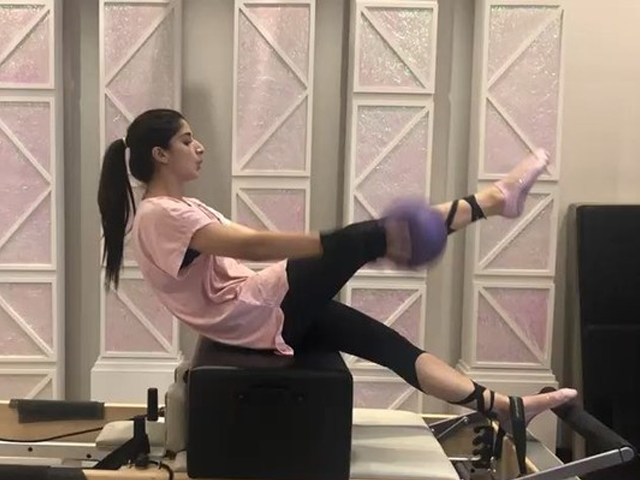Should you work out during Ramazan?
We look at what science and fitness experts have to say in response to this million-dollar question

PHOTO: MAWRA HOCANE/INSTAGRAM
Fasting can often make us neglect our health though. Experts say it is important to make time for exercise during Ramazan as well in order to supercharge fasts. Considering that, here are some tips on exercising while fasting and some common myths attached to it.
Why should you work out during Ramazan?
https://www.instagram.com/p/BsNvXPsB0ow/
Everyday movements help our circulation, release endorphins to improve our moods, regulate blood pressure and reduce stiffness. But it’s easy to sleep through most of the fast. Fewer movements throughout the day lead to poor circulation, more aches and pains, headaches. Add to that the fact that you haven't eaten since very, very early in the morning and you've got a bad mood too.
When should you work out?
https://www.instagram.com/p/BxChmpGAYxQ/
Exercising right before sunset is widely regarded as the best time to workout during Ramazan. Canadian-based nutritionist Anar Allidina explains that the knowledge that you will be breaking your fast soon helps you to push yourself a little harder. If your busy schedule doesn’t allow that, she recommends working out about one hour after eating. At that point, some of the food will be digested which means more energy.
Allidina explains the worst time to hit the gym is in the middle of the day because those fasting will exhaust themselves and be unable to refuel until iftar time. Here are some other options:
Before Fajr
Fajr is around 4.30am which means waking up at around 3am to exercise before sehri. This is a viable option but it may be difficult to fall back asleep after it.
Before iftar
Moving your body in a fasting state will force the body to dip into fat reserves earlier, and you’ll be able to replace it with nutrients immediately after breaking fast.
After iftar and before Isha
This is also a great option for working out if you’re planning it right. In Pakistan, iftar generally occurs between 7 to 7.30 pm so it’s good to take a small but powerful snack such as dates and fit in a 30-minute workout around 8pm.
How long should you exercise?
https://www.instagram.com/p/BsK9iNyF7xl/
If you can push yourself to work out directly before or after eating, this means it is easier to work out for a longer period of time. Health experts recommend starting off slow for the first few days of Ramazan by exercising for only half an hour. Once your stamina and endurance heightens later on into the month, it is okay to work out for up to an hour.
What type of exercise should be done?
Ramazan is a time for maintaining your body or fitness, not to break personal records. Fitness instructor Zehra Allib says it means continuing your general exercise routines as long as they’re not too physically grueling.
Those fasting should stick to non-rigorous cardio. Heavy lifting is not recommended during fasting as strength training requires, well, strength. This means the body turns to glycogen, or carbs stored in muscles and will not be able to exert the strength or endurance required to see results because of the depleted glycogen.
However, more intensive work-out can be done after fast is broken. Fitness experts also recommend lighter physical activity such as walks and stretches for people who are not used to working out.
Facts or fiction?
https://www.instagram.com/p/Bw2UMvQATg6/
Research has shown that many aspects of athletic performance (eg. submaximal exercise, muscular contraction and power) are unaffected by fasting. Many of our favourite workouts can easily be continued in Ramazan if timed correctly, with simple modifications and a careful diet at iftar and sehri.
As part of a study, about 500 Muslims were surveyed on their past exercising habits in Ramazan. The vast majority agreed that exercise is important to them during the month but when it came to actual fitness practices, only 10% reported exercising regularly during the 30 days.
What’s your Ramazan going to look like this year? Will you be making time for exercise during the month?
Have something to add to the story? Share it in the comments below.



















COMMENTS
Comments are moderated and generally will be posted if they are on-topic and not abusive.
For more information, please see our Comments FAQ